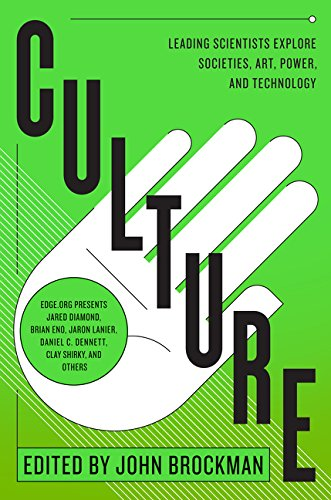
Culture
Leading Scientists Explore Civilizations, Art, Networks, Reputation, and the Online Revolution
کتاب های مرتبط
- اطلاعات
- نقد و بررسی
- دیدگاه کاربران
نقد و بررسی

July 18, 2011
John Brockman, founder and publisher of the online think tank Edge.org, compiled some of the site's best essays into this dense, but thought-provoking examination of technology, the impact of groupthink, and the evolution of culture. One of the stronger essays is Jared Diamond's "Why Do Some Societies Make Disastrous Decisions?" which is accessible, insightful, and informative even for a general audience. A sizeable chunk of the book is given to computer scientist Jaron Lanier's "Digital Maoism," and the fallout that resulted after its publication in 2006. In Lanier's intriguing essay, he examines the positive and negative impacts of the "hive mind." Nine others were inspired to chime in with their thoughts, edits, and refinements on Lanier's concept. The essays aren't all winnersâprofessor David Gelernter's 2010 essay "Time to Start Taking the Internet Seriously," is a 36-point circular discussion with few conclusionsâbut the hits outnumber the misses. Readers hoping for an easily digestible Gladwell-esque take on the evolution of culture will likely be frustrated by the book's academic slant, but those who enjoy philosophical dissection will find a few essays that strike a chord.

June 1, 2011
Prominent thinkers examine the many facets of culture over time and in the present age of the Internet.
A champion of the "third culture" formed at the intersection of art and science, literary agent Brockman (editor: Is the Internet Changing the Way You Think?: The Net's Impact on Our Minds and Future, 2011, etc.) publishes original work by leading scientists in many disciplines at edge.org. This latest collection from the site offers the expertise and speculations of 17 mathematicians, musicians, computer scientists and others who have contemplated the meaning, role and evolution of culture. Artist and composer Brian Eno wonders why humans have always engaged in cultural activity, and whether there is one language for discussing the components of culture, from shoe design to fine art. UCLA biologist Jared Diamond suggests a road map of factors that can lead to disastrous societal decision-making, from failing to anticipate a problem to failing in the attempt to solve it. Harvard physician and social scientist Nicholas A. Christakis describes studies indicating that the nation's obesity epidemic is actually a form of "social contagion," in which a friend's weight gain makes you put on weight. Many pieces consider the Internet's impact on how we live. MIT computer scientist David Gelertner says it is time to think about what we want the Internet to do instead of "just letting it happen," and his colleague Jaron Lanier warns of the dangers of a new belief in an all-wise online collectivism. Publisher Frank Schirrmacher argues that modern technology is "changing the way people behave, people talk, people react, people think, and people remember," and turning us all into "informavores" who eat information. The Santa Fe Institute's W. Brian Arthur discusses his years working in seclusion on unanswered technology-related questions—most notably, Does technology as a whole evolve?
A welcome gathering of intriguing ideas.
(COPYRIGHT (2011) KIRKUS REVIEWS/NIELSEN BUSINESS MEDIA, INC. ALL RIGHTS RESERVED.)

























دیدگاه کاربران